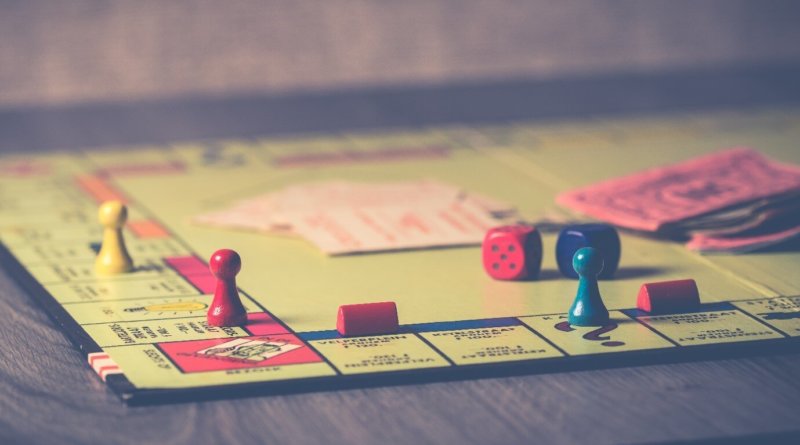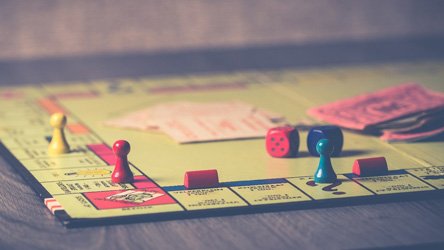
In a digital age where most activities are done on a screen of some sort, board games can still play a significant role in terms of entertainment, challenging ourselves and having fun. They are not only regarded as a form of entertainment, where people can interact and connect with one another, but they’re also a means to promote abstract thinking and logical processes – developing our physical and mental health.
Our bodies fully function when we are active, theories suggest, and an active body is beneficial to an active mind. Yet, we are not just talking about physical activities.
Keeping your mind active and healthy will have positive effects in the long run for everyone, regardless if they have a disability or not.
Get a FREE Brochure
Simply complete our form to see a full range of bathing solutions & their key features. It takes no time at all!
People with disabilities may find some board games challenging or encounter difficulties, particularly processing reasoning and strategy thought processes.
Playing board games can also be therapeutic and improve one’s mood, which may result in a higher level of confidence and optimism. People who were born with a disability or have been seriously injured in an accident and now live with a permanent physical disability, are able to better cope with this after they start joining games and activities. This enables them to express themselves and their skills in their own way.
Depending on the age, several games are now available and have been adapted to allow disabled people to play and enjoy them. However, there also some traditional board or card games that can help people develop and sustain their health. Discover some of our picks for the best board games for people with disabilities.
1. Memory
This is probably one of the most popular board games that we start playing when we are kids, and it can be a great activity for grandchildren and their grandparents affected by early stage of Alzheimer’s.
As the name suggests, this game helps improve and maintain good memory as well as increasing your attention to detail. The colourful cards used in this game, that need to be matched up, show big and clear objects that can be easily recognised and associated, and this can improve the ability to find similarities and spot differences in objects.
2. Word Search games
Games such as Word Search and Word Association stimulate cognitive processes and can help improve people with Parkinson’s disease. Those affected should engage in games with simple basic rules and a short playing time, where deep concentration and strategy are not required.
Word Association aims at training language and reasoning by matching simple words that belong to the same semantic group, for instance ‘spring’ and ‘autumn’. Whereas Word Search may be slightly more challenging, as it involves finding hidden words or symbols within a puzzle with the aim of promoting attention and visual memory.
3. Large print Scrabble and Dominoes
Many games have now been adapted to braille (a written language system for blind people) or tactile versions to allow people with low vision to take part in these. Larger tiles are easier to grip and they also have enhanced brighter colours to give greater contrast between all squares.
For those who haven’t played these games before, don’t worry – instructions are provided on a CD, so people can listen to them.
4. Twister
Twister is a great game for younger people with motor disorders, which can cause unusual and involuntary movements affecting the speed, ease and fluency of muscle movements.
By involving the use of different colours and different parts of the body, this game enhances hand-eye coordination as well as flexibility. As each player needs to wait for the referee to spin a wheel before moving a part of the body. Twister is also great at training voluntary movements whilst receiving some instructions before moving.
In this game, that also promotes team building and interaction, two teams compete against each other and the winner is the last one who remains standing. It’s a lot of fun but can involve the odd tumble or fall, so be careful of this when playing!
5. Monopoly
Undoubtedly one of the classic board games of all time, Monopoly can easily be played by hearing-impaired people as it is mostly a visual game.
Most people tend to think that hearing-impaired people of an older age cannot play board games as they have less concentration and strategy, but this is a complete false myth. They will be challenged and willing to prove that a disability with one’s hearing problem is not an obstacle.
At the same time, Monopoly is also great for deaf children, as it allows them to improve their social and verbal skills whilst socialising with other kids around them.
Not only do board games improve and maintain our reasoning skills, but they are also fun and entertaining – enabling anyone to enjoy them whilst connecting and socialising with other people, no matter if they have a disability or not. Do you know of any board games that are great for people with disabilities? We would love to hear your picks and why you like them, so please leave a comment in that case.
Here at Bathing Solutions, we provide accessible, high-quality walk-in baths, walk-in showers, and wet rooms for elderly and disabled people who require them. Why not have a look?






